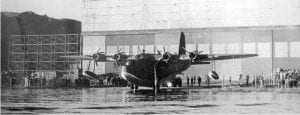UOB PhD student Gary Willis writes for us, below, on the Council for the Preservation of Rural England. Gary wrote his Masters dissertation on the role of British conservation organisations during the Second World War, and this forms the basis of an article about the role of CPRE during the war which is now published in the October 2018 issue of the Rural History journal. He is currently undertaking a PhD on the impact on the rural landscape of Britain’s expanded war industry in the Department of History (Historical Studies) at Bristol, supervised by Professor Peter Coates.
_______________________________________
‘An Arena of Glorious Work’ . Such was described the Council for the Preservation of Rural England’s work during the Second World War, trying to protect the nation’s rural landscape against the consequences of its own war effort. The quote comes from Professor Patrick Abercrombie, Executive Committee member of the CPRE, National Trust and sometime consultant to the Air Ministry, whose unpublished account of his activities during the Second World War is preserved in the University of Liverpool’s Special Collections. That and the (now) Campaign for the Protection of Rural England’s archives at its South London HQ and at the Museum of English Rural Life, University of Reading, enable an expanded understanding of ‘Home Front’ activities during the Second World War.
The CPRE archives show an increasing pre-occupation with concerns over demands for land from late 1935 onwards, particularly by the Air Ministry for airfields, the Ministry of Aircraft Production for aircraft factories, the army for training camps, and the Ministry of Supply for munitions factories. With no significant protective legislation in existence until 1947’s Town and Country Planning Act over the use to which land could be put, there was in effect a War Department land-grab free-for-all in 1936 and 1937, with CPRE performing a reactive, rear guard action to stop swathes of countryside from being requisitioned by the military at a time when war was by no means assured.

A flying boat factory at Calgarth on the shores of Lake Windermere during the Second World War; CPRE fought unsuccessfully to stop the factory being built, but extracted a promise that the factory would be dismantled at the end of the war. It was. (photo courtesy of Allan King, photographer Derek Hurst).
Whilst CPRE was supportive of Britain’s war effort once war was declared, it nevertheless sought throughout the war to remain an effective advocate for the preservation of the rural landscape – a landscape which whilst regularly being evoked by State propaganda to stimulate the population’s support for the war effort, was subject to alteration and degradation by that very same effort. With normal public means of securing influence such as parliamentary debate and the press severely limited by war regulations, CPRE’s response was a generally private campaign by letter, phone calls and meetings, central to which was support from its political allies in government and tip-offs from sympathetic civil servants. CPRE’s policy and priorities during the war years was a mix of opposition to some war-effort related proposals for rural land use, acquiescence to others, such as open-cast mining and the felling of mature woodlands, and persistent efforts to seek to ensure that requisitioned land was returned to its pre-war use once the war was over.
Central to CPRE’s capacity to influence was a consultative mechanism created by Prime Minister Neville Chamberlain in 1938, following sustained lobbying by CPRE. It established the organisation as a stakeholder that Government ministries were required to consult with over their proposed use of land in rural areas for airfields, training camps, war industry, and other purposes. This directive was never revoked by the Coalition Government, but perhaps inevitably became less influential as the war wore on. Nevertheless CPRE’s stake was still high at war’s end, as in November 1946 the organisation was invited to arrange for the coordination and presentation to the Inter-Departmental Committee on Service Land Requirements all of the evidence which voluntary organisations throughout the country might wish to give regarding the effects of the Services’ post-war land proposals from the point of view of amenity, archaeology, natural history and other scientific interests. This led to CPRE having under review hundreds of cases across England and Wales, using confidential material supplied by the Defence Departments.
The CPRE poacher had at least momentarily turned gamekeeper. CPRE found itself, albeit temporarily, an agent of the State, tasked with dealing with multiple voluntary organisation interests and agendas, some more capable of objectivity than others, rather like the different shades of opinion within the broad church CPRE federation itself. CPRE complained, on behalf of and in defence of the War Office, and without a hint of irony, that there had been frequent unjustified complaints about the Services’ proposals being suddenly announced and precipitately decided. It was all rather reminiscent of the 1936 to 1937 period, when CPRE had been making those very same criticisms of the Defence Departments. Except that in between CPRE had been engaged in ‘an arena of glorious work’.
Twitter: GaryW_Env_Hist
Email: gw17409@bristol.ac.uk
